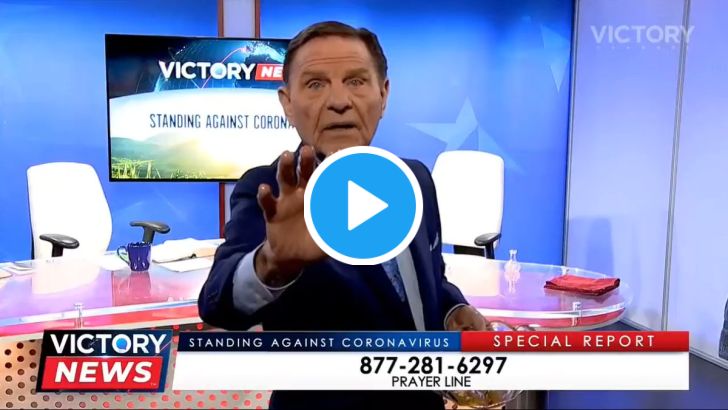Of course this will be about coronavirus.
It’s affected everything.
Hi everyone. This is the free edition of The Post-Evangelical Post.
The coronavirus pandemic finally gets taken seriously
How can one even begin trying to summarize the week we’ve had? Things unraveled this week.
On Wednesday, President Trump addressed the nation and did such a poor job that the market went into free fall. Today, he finally announced a national emergency and the markets rallied in kind, but let’s be clear: he trotted out CEOs in an effort to spin this into some public/private sector response, when he has utterly failed to demonstrate the leadership capacity required of a president during a dire time of need.
Trump appeared totally disinterested today. He acted like a sullen child forced to take his medicine (he is a 73 year old man). He expressed no emotion appropriate to the occasion. He has shown more vigor when trying to, inexplicably, lobby for Pete Rose to be inducted to the Baseball Hall of Fame.
On the day he tweeted this, 35,000 cases of coronavirus were known worldwide. Three days before that, he was acquitted.
Trump responded today in his typical “modern presidential” fashion: by not accepting any responsibility whatsoever. From Vox:
At one point, Trump was asked about the admission of Dr. Anthony Fauci, director of the National Institute of Allergy and Infectious Diseases, that our lag in testing was “a failing.” And he was asked if he takes responsibility for this failure.
Trump’s response: “I don’t take responsibility at all.”
Everything leading up to today’s national emergency declaration has been a demonstration of the Trump administration’s horrific combination of callous indifference and prideful incompetence. Condemnation on the administration - and Trump in particular - has been swift across the media.
Writing for The Verge on Thursday, Elizabeth Lopatto called for President Trump to resign:
“We are desperately short on time to fend off a new illness that could kill hundreds of thousands. We are far behind on testing and are essentially going into this pandemic without a playbook. And the president is concerned about his narrative.”
Over at NY Mag, the essay “Coronavirus Shows Us America is Broken” gets to the heart of it:
“There has been no meaningful centralized leadership of any kind, and, perhaps more important, no reliable source of information or guidance for how to behave as individuals. Instead, there is only a vacuum of authority, and the vague advice that we should wash our hands, suspend nonessential travel, stay six feet from one another. Almost everywhere you look, public anxiety has been met with total silence, which sends the message: Fend for yourself. Every institution you thought you might turn to — for medical support, direction, social guidance — is at best struggling and, in many cases, worse. Many enormous questions remain entirely unanswered, and there is no authority or entity to turn to for information — about what the lethality rate is, or whether we can expect a weather-driven slowdown in infections as the spring turns to summer; about the possibility of multiple strains, or the mystery of why the disease seems so much more deadly in Italy and Iran than even in Wuhan, where it hit before anybody knew what it was.
This is not how a functioning society responds to a crisis. And while it is important to keep in mind that even the worst-case scenarios for COVID-19 stop far short of producing total social and political disarray — producing merely widespread death and suffering and an almost incalculable burden on our already stretched-thin medical capacity — it is nevertheless astonishing, and horrifying, just how quickly we have arrived here, almost totally distrustful of the civic institutions we expect to protect us.”
Coronavirus, religious communities, and religious grifters
This is the backdrop upon which churches and religious leaders have had to respond. Churches around the nation are suspending in-person worship services. The Episcopal church in Chicago, where I live, has suspended all in-person worship and meetings. Other groups have taken similar measures to ensure social distancing and protect the most vulnerable.
Meanwhile, two days ago Trump advisor Paula White sent out an email promising “Supernatural Protection from the CoronaVirus Now:”
And Kenneth Copeland was “healing” people through their TVs:
And the state of Missouri is suing Jim Bakker for selling a fake coronavirus cure:
But of course, there is good happening, too. At Sojourners, Tiffany Firebaugh wrote about the church’s role in a pandemic. The entire essay is worth reading, but I want to highlight the conclusion:
“COVID-19 forces us to push back against the narrative of individualism and remember that we all depend on each other. In the face of this, churches can mobilize to meet both the physical and emotional needs of their congregants and their communities, as well as to practice the perspective of putting the most marginalized, vulnerable folks at the center of decision-making. This pandemic will reveal who we are. Hopefully it will reveal that we are love.”
Rabbi Danya Ruttenberg also has a helpful thread about the value of a spiritual practice, regardless of whether you are religious:
There is no real resolution to this edition. It feels as if we have just begun. I have neglected to mention the cancellation of the NBA season, March Madness, school closures, and the push toward social distancing. Each day is shifting rapidly. I will continue to try and provide some context and surface relevant stories as they arise. This is uncharted territory.
Be good to one another. Help those in your sphere of influence. Check in on people you know who are at risk. Support the creators you admire. If you write, keep writing. If you draw, keep drawing. If you sing, keep singing. If you play music, keep playing. We need you, and we need you well.
Finally, as we all continue social distancing, self-isolation, and quarantining:







